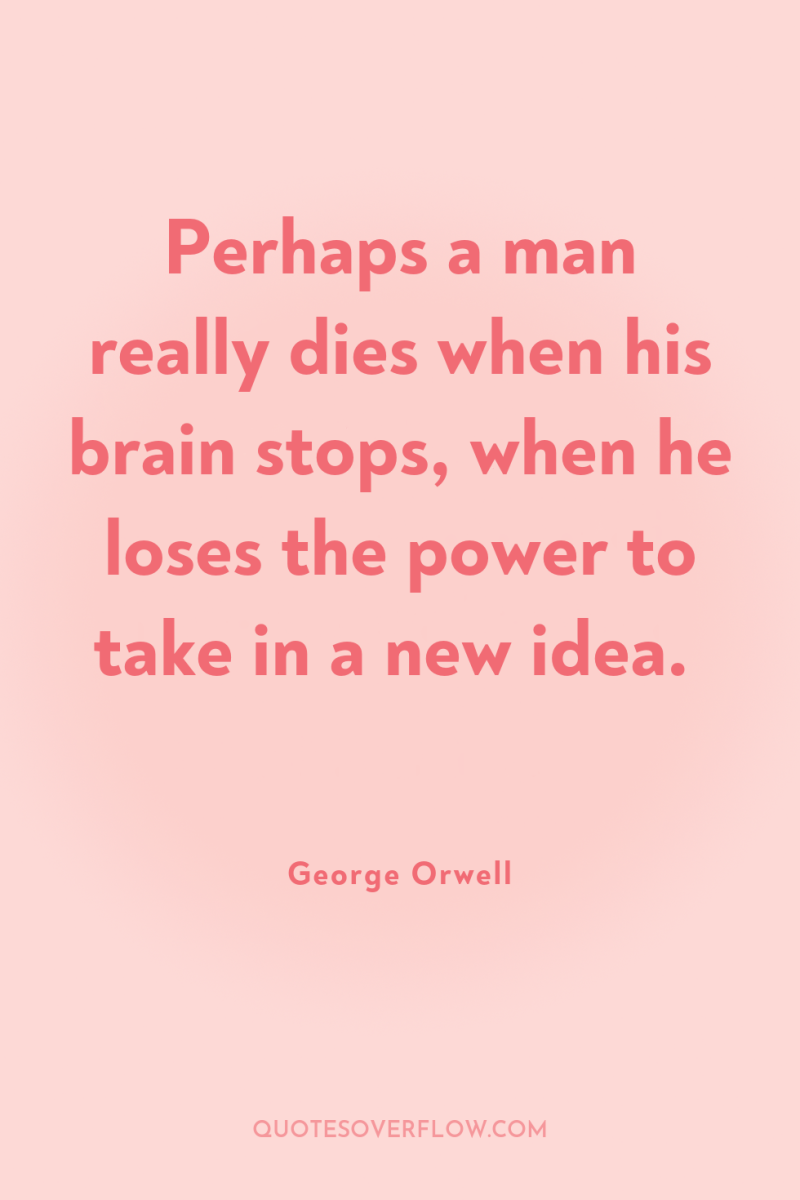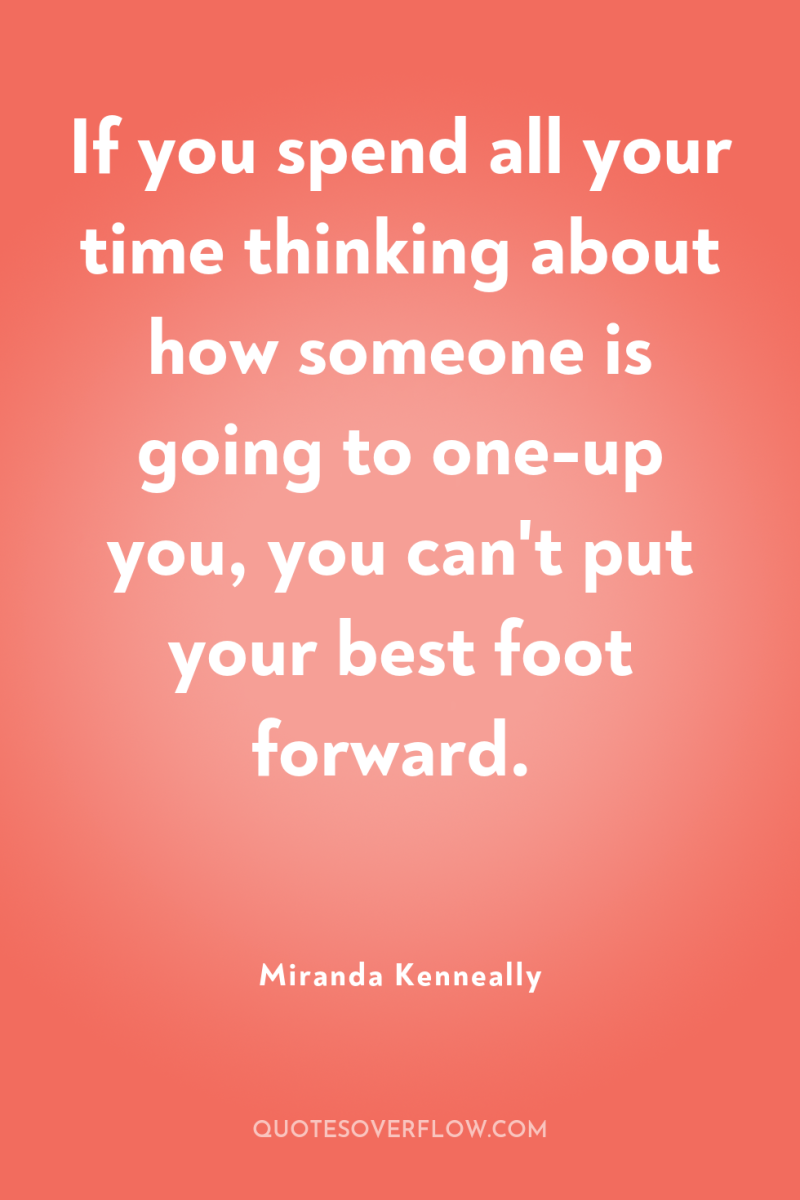
1
Perhaps a man really dies when his brain stops, when he loses the power to take in a new idea.George Orwell

2
If you spend all your time thinking about how someone is going to one-up you, you can't put your best foot forward.Miranda Kenneally
3
I suppose there hasn’t been a single month since the war, in any trade you care to name, in which there weren’t more men than jobs. It’s brought a peculiar, ghastly feeling into life. It’s like on a sinking ship when there are nineteen survivors and fourteen lifebelts. But is there anything particularly modern in that, you say? Has it anything to do with the war? Well, it feels as if it had. The feeling that you’ve got to be everlastingly fighting and hustling, that you’ll never get anything unless you grab it from somebody else, that there’s always somebody after your job, that next month or the month after they’ll be reducing staff and it’s you that’ll get the bird — that, I swear, didn’t exist in the old life before the war.George Orwell
4
The past is a curious thing. It’s with you all the time. I suppose an hour never passes without your thinking of things that happened ten or twenty years ago, and yet most of the time it’s got no reality, it’s just a set of facts that you’ve learned, like a lot of stuff in a history book. Then some chance sight or sound or smell, especially smell, sets you going, and the past doesn’t merely come back to you, you’re actually IN the past. It was like that at this moment.George Orwell
5
Summer days, and the flat water meadows and the blue hills in the distance, and the willows up the backwater and the pools underneath like a kind of deep green glass. Summer evenings, the fish breaking the water, the nightjars hawking round your head, the smell of nightstocks and latakia. Don’t mistake what I’m talking about. It’s not that I’m trying to put across any of that poetry of childhood stuff. I know that’s all baloney. Old Porteous (a friend of mine, a retired schoolmaster, I’ll tell you about him later) is great on the poetry of childhood. Sometimes he reads me stuff about it out of books. Wordsworth. Lucy Gray. There was a time when meadow, grove, and all that. Needless to say he’s got no kids of his own. The truth is that kids aren’t in any way poetic, they’re merely savage little animals, except that no animal is a quarter as selfish. A boy isn’t interested in meadows, groves, and so forth. He never looks at a landscape, doesn’tgive a damn for flowers, and unless they affect him in some way, such as being good to eat, he doesn’t know one plant from another. Killing things - that’s about as near to poetry as a boy gets. And yet all the while there’s that peculiar intensity, the power of longing for things as you can’t long when you’re grown up, and the feeling that time stretches out and out in front of you and that whatever you’re doing you could go on for ever. .George Orwell